I had lunch with a new friend, Cheryl, recently. As the two of us sat in the corner booth at a local restaurant, we swapped life stories and shared more details than one normally would on a first friend date.
As we shared our life stories, we didn’t gloss over the hard parts and soon realized we had a lot in common. We had both held important positions within impressive organizations, but neither of us had been the least bit impressed with ourselves while doing so.
We both admitted that our personal insecurities had caused us to work overtime to win the approval of others.
Table for two recovering insecure overachievers, please.
To be clear, this wasn’t a pity party. It was more like a frankness fiesta. We laughed at ourselves and breathed a collective sigh of relief for finally figuring out that we could live a life where we didn’t have to kill ourselves to prove ourselves.
It was a simple, but compelling scene: Two women who fumbled their way over the finish line of finally learning that having it “all” was a tragic farce unless we were the ones defining our “all.”
The most memorable part of our honesty party was when Cheryl asked me a question that almost made me spit out my soup. As I was going on and on about my previous life of 80-hour workweeks, Cheryl interrupted my rambling rant by asking, “How’d you get the hole in your donut?”
I had no idea what she was talking about, and at first it felt like a remarkably personal question to ask on a first date. When I asked her to elaborate on what she meant by “my hole,” she clarified the question: “How did your pastry (in this case your sense of self) end up with a hole in it? Why did it turn into a donut instead of a muffin?”
Holy shit, Cheryl.
What an amazing question. It implies there’s a cause and effect relationship to everyone’s insecurities. And while we can talk all day long about the effects — the people pleasing, the saying “yes” when we want to say “no,” the inability to draw boundaries— the real work starts when we get curious about the root cause of our insecurities.
I didn’t have to think long to answer the best question I’d ever been asked. I took a deep breath, looked out the window and exhaled, “high school.”
My high school experience appeared picture perfect from the outside but was filled with doubt and insecurities on the inside. The highs and lows of the social scene and my own self-esteem made it almost impossible to get my self-worth from myself, so I began to seek it from other people. “Look at me, I’m perfect! Be proud of me! Love me!”
Insert 20 years of striving and overachievement, for all the wrong reasons, and you’ve got yourself a pretty interesting lunch conversation.
The hole appeared in high school, got bigger over time, but finally closed when I walked away from the accolades and trophies for a more whole and balanced life. Cheryl had done the same.
We started living our lives for us and not for other people, and the holes got smaller and smaller. Here are a few life lessons I learned from lunch that day.
1. Honesty begets honesty. If you’ve had a tough time, talk about it. Odds are the person sitting across from you can match and raise you, and would welcome the opportunity to do so.
2. Don’t be ashamed of your hole. Given the choice, most people would choose to be a muffin. It doesn’t have a hole; holes are bad, I’ll take that one. Don’t make that mistake. Pick the donut. The hole is what makes you interesting. And ironically, the hole is what makes you whole, because the very place that appears empty is actually full of rich stories, vulnerable truths and incredible bravery.
3. Figure out where your hole came from. If you’re running through life like it’s a rat race, and you’re not quite as fulfilled as you think you should be, stop and ask yourself Cheryl’s stunning question, “Where’d you get the hole in your donut?” The reflection of our insecurities is often easy to see on the surface (ever caught yourself volunteering for something so you look like a good mother?), but the root cause lies deep beneath that surface.
As you contemplate your answer, notice that the question is not why do you have a hole in your donut. The question is, where did it come from? It assumes you have a hole, as most donuts do, and that it’s perfectly normal to have one.
The question isn’t here to make you defensive. It’s here to make you curious.
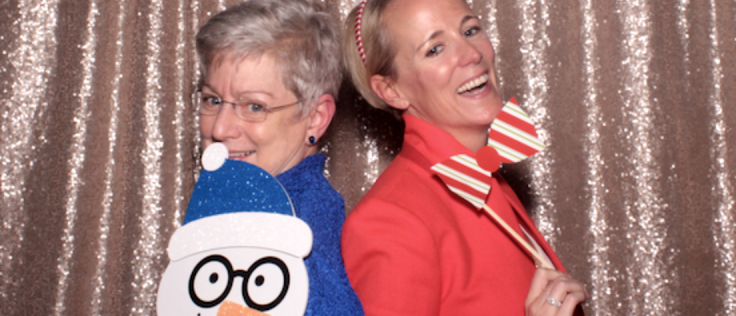
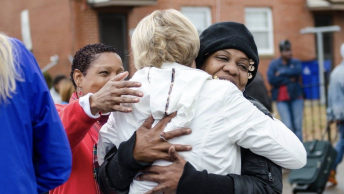
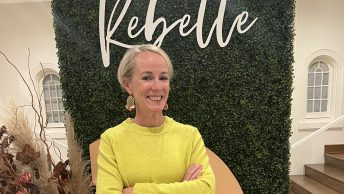
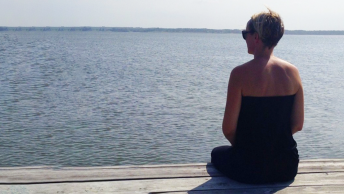
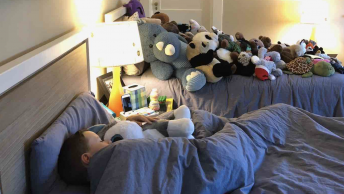
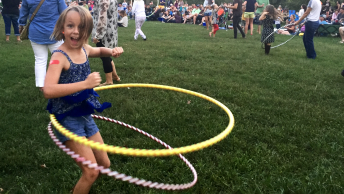
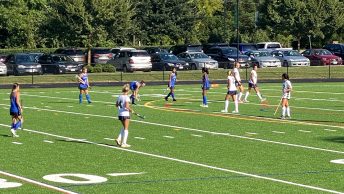
Thank you Katherine once again. This is so spot on. I appreciate your authenticity with your readers.
Thanks for this post, Katherine! Jenna Fitch linked to it from LinkedIn.
A study of women at Duke U. across the life cycle (undergraduate students to professors) labeled the expectation for women “effortless perfection.” More from me (and a link to the study) on that here: http://laurakornish.com/2018/04/three-things-that-no-one-has-ever-said-about-me/
Hi Laura! Love your insight here. Thank you for sharing!